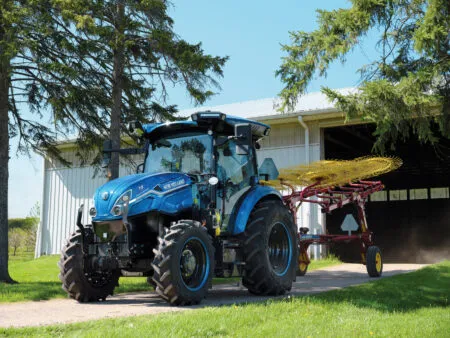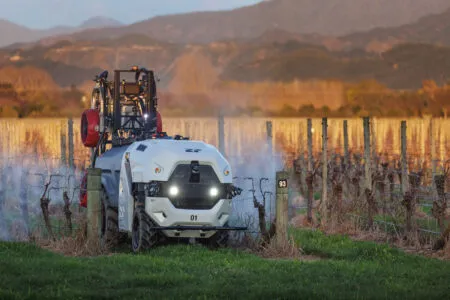MEP Elisabetta Gardini, European Parliament rapporteur on the environment, public health and food safety (ENVI) committee, presented on May 7 a lengthy report on a proposal for a regulation on requirements relating to emission limits and type-approval for IC engines for non-road mobile machinery which again opened the question of narrow-track tractors.
Gardini opened her report on the proposal by the EC for off-road vehicles by underscoring the point that the draft is not compatible with the technical characteristics of narrow-track tractors used for operations in vineyards, fruit orchards and the like. Because of their specialized work and the size of their engine compartment, manufacturers of these tractors cannot install the engines, including the aftertreatment systems, while continuing to meet the operational requirements in terms of size and manoeuvrability unless they are totally redesigned at costs which could not be sustained by the industry nor by farmers and contractors seeking to purchase these machines.
Assotrattori, the association which represents the tractor sector in the Italian Agricultural Machinery Manufacturers Federation, FederUnacoma, affirmed in a meeting with the MEP on May 4, that a redesign of narrow-track tractors would see costs driven up by 20% or 30%. This would be an exorbitant increase which would knock them out of the new machinery market with disastrous results for the Italian industry, the world’s leading manufacturer of this type of tractor. The compulsory application of the stringent requirement of Stage V entailing modifying engines for aftertreatment systems is set for 2019/2020, a date which fails to take into account that in October 2017 narrow-track tractors will be required to conform to the earlier Stage IV.
The manufacturers of specialist tractors are battling for postponements and differentiated applications of the regulations compared with most other off-road engines.
The position taken by rapporteur Gardini for a specific norm for narrow-track tractors is in line not only with that of FederUnacoma but also those of Spanish manufacturers, European manufacturers in CEMA and the European professional farmers organizations represented by Copa-Cogeca. There is also total agreement on the assessment in the technological ‘feasibility’ document prepared for the EC by the British Transport Research Laboratory and published in December 2014, which manufacturers judge as totally inadequate with regards the method of evaluation and the conclusions reached.
The passage of a new regulation will initially require discussions followed by votes cast by the members of the ENVI committee and then a move to a plenary session of the parliament. The schedule set out by MEP Gardini is for a vote by the Strasbourg assembly in the second half of the year so that final agreement with the other institutions, the European Commission and Council, can be reached by December.
May 22, 2015




